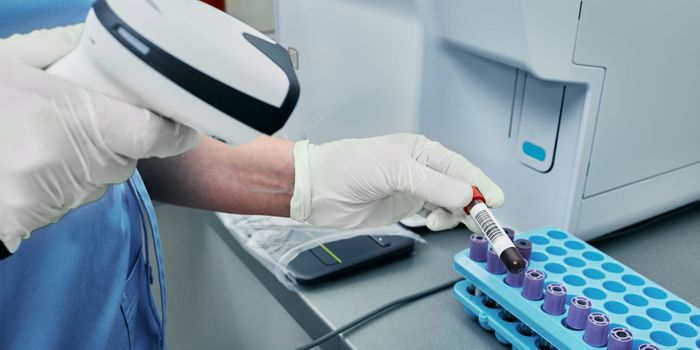As researchers are still working on a cure for Alzheimer’s, early diagnosis remains a critical step in treatment and disease progression. While some recent methods have focused on detecting abnormal levels of beta-amyloid proteins, researchers at Randox Laboratories are turning to a different protein: the apolipoprotein E (APOE). In addition, the scientists say their new
biochip-based blood assay provides faster answers than conventional methods, which could potentially buy patients more time.

There are currently very limited methods to definitively diagnose Alzheimer’s in living patients. Most tests focus on symptoms of dementia, and the Alzheimer’s diagnosis is only truly confirmed when pathologists find evidence of abnormal amyloid protein clumps in the brain. A blood-based test that’s quick and accurate could be a game-changer for patients.
The new blood test is based on a protein known as apolipoprotein E (APOE). A mutant copy of this protein, labeled APOE4, is known to significantly increase the risks for Alzheimer’s disease. One copy of APOE4 increases risks for Alzheimer by 3 times, whereas two copies of APOE4 skyrockets the risk to 8-12 times. This association is so remarkable that when Dr. Jim Watson, co-discoverer of the DNA double helix, released his sequenced genome, he specifically asked his APOE status to remain a mystery.
In contrast to Dr. Watson, some patients would rather know their APOE status, as early detection for Alzheimer risks could guide lifestyle and treatment options. For these patients, Randox Laboratories’ new biochip could be the answer.
The test detects a patient’s APOE4 status from blood samples. In validation experiments, this biochip test performed identically to a standard test, but in a shorter amount of time. In contrast to the costly and time-consuming nature of conventional APOE tests, the new biochip provides a cheap but accurate answer in a mere 3 hours.
"This is the first time that we have used this biochip technology to test for an increased risk of Alzheimer's disease," said Emma C. Harte, a research scientist at Randox Laboratories. "This type of testing is important in our quest to understand and diagnose Alzheimer's and empower patients to understand risks, consider medication, and even make early lifestyle changes."
"Pairing this test with medical and family history for risk of Alzheimer's disease has the real potential to advance personalized medicine. This fast, accurate testing will allow doctors and patients to make more informed choices earlier to potentially slow the possible progress of Alzheimer's,” said Harte.
Additional source:
MNT,
AACC news release










